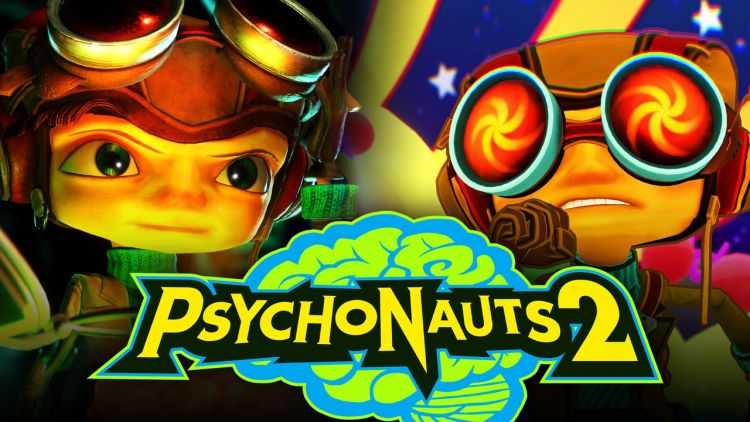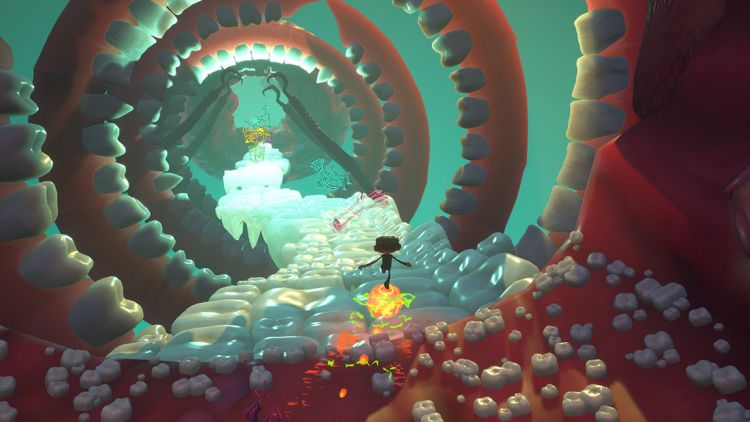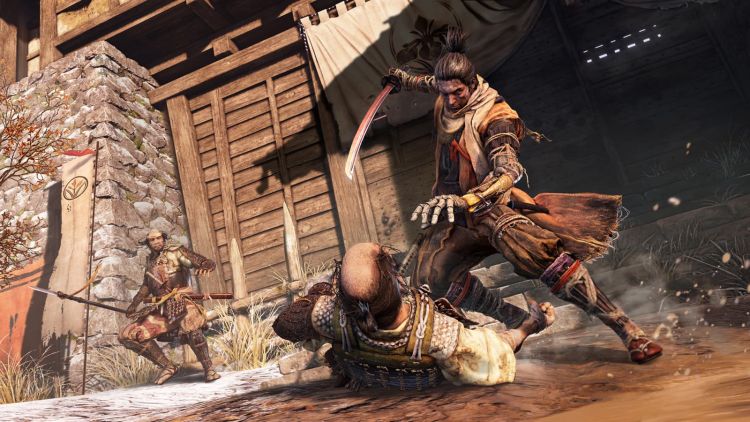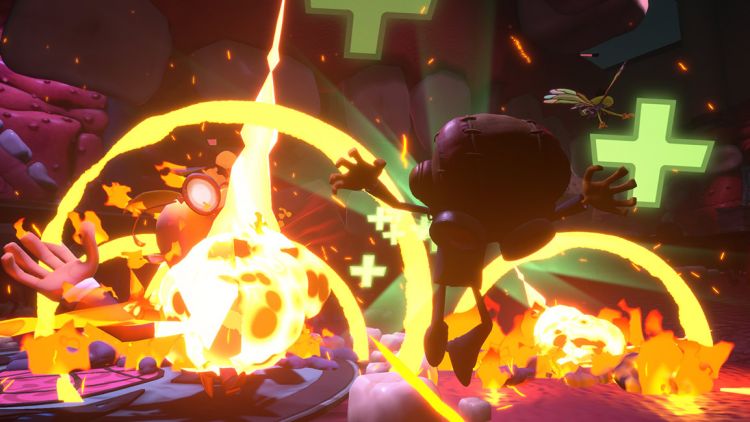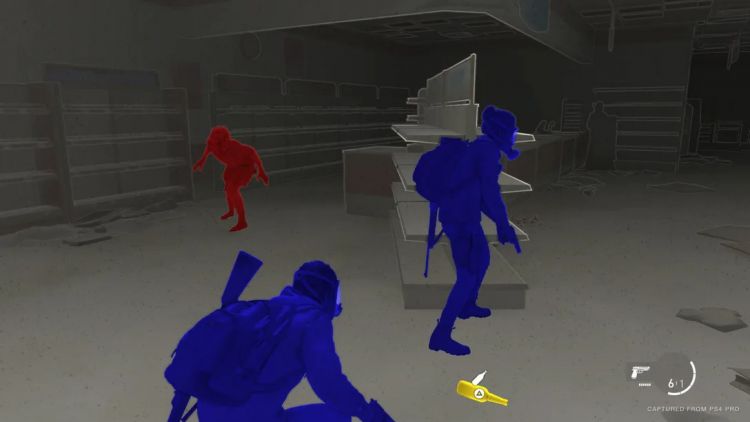If you use Twitter in any capacity and have decided to expose yourself to the toxic depths of the gaming community’s social media channels, you probably have heard that Double Fine announced an invincibility toggle for Psychonauts 2 (Source: IGN). This effort to expand on the upcoming platformer’s accessibility has, of course, reignited the age-old argument where abled gamers see this as a sort of insult to their gaming prowess or beloved game developer, because at the end of the day, why not?
Video games have become so much more popular than people even realize these days and they’re attracting so much more attention than they ever used to. I grew up during that time where video games were not cool and admitting that you enjoyed them sorted you into the nerd clique. My parents consistently told me it was a “phase I would grow out of” and eventually I just decided that anybody who interacted with me in any real-world situation would probably never learn about my gaming hobby. I’ll be thirty-two in August and to this day, thinking about talking about my love for gaming outside of the internet actually causes me real anxiety. However, that’s enough about me. We are in the year 2021 and public opinion on gaming has gone through a bit of renaissance in the public eye. If you had told me when I was younger that I’d be able to watch video games being played on ESPN, I would have laughed at you while doing my best to get away from this weird stranger.
I guess my point is, with the way gaming has grown throughout my life, I am more than happy to welcome people into the pixelated embrace of video games. It goes without saying that I absolutely am okay with video games becoming more accessible to other people. From the fully-abled gamers who just couldn’t hoof it through Sekiro like me, to the disabled gamers who just want to be included in the fun. I think it’s okay to include everyone’s tastes in gaming. And that, dear readers, is where this piece is going.
Stop talking about “Artistic Vision”
One of the biggest things I see people doing right now is trying to use the developer’s vision as a way to argue accessibility. No one is really questioning that, and it’s definitely the most obvious statement you can make when fighting against accessibility in gaming. Yes, we all know what Fromsoftware was going for when they made games like Dark Souls and Sekiro. Those games are incredibly challenging. It’s one of the many things those games do that we love and no one is really mad at them for that. However, it is okay to criticize those games, and as far as our disabled brethren in the community are concerned, it is imperative that they get a say in the accessibility of those games. Dark Souls and Sekiro are already hard enough for abled gamers, now, imagine being denied full use of your body or mind and trying to learn a game like those mentioned above.
Another thing about this argument is that at the end of the day, gamers don’t really care about a developer’s “artistic vision” anyway. At least not the vocal folk on social media arguing over it anyway. Just because one game was made a specific way, doesn’t mean their vision will stay that way. I remember when they announced that Sekiro was going to have a pause feature and people actually got upset over that decision. It quickly went from respecting the Fromsoftware’s “artistic vision” to “wow, they’re making it easier and I don’t like that.” Now, two years later, here we are again and the artistic vision Double Fine has for Psychonauts 2 involves an invincibility toggle in an effort to open up the game to a broader audience, and people questioning it. We’re back to fighting about the difficulty in video games. So, maybe it would be for the best if we just stopped trying to tell people to respect something that we never intended to respect in the first place? It’s all just an act that is immediately dropped a community feels betrayed.
It’s not about you
If there is one thing I learned while existing in the toxic atmosphere that is social media, it’s that the gaming community is a very weird and inconsistent community to be a part of. I don’t necessarily mean that in a negative way, however. It’s just that it can be an incredibly inviting and inclusive community one moment, where everyone gets along great. There are genuinely wonderful people involved in the community. On the other hand, the gaming community is made up of a plethora of little sub-communities that work in tandem with each other to support the industry. Each one is full of many passionate individuals and where some of these guys are concerned, should you speak out about the wrong subject, they can and eventually will turn on you, slamming the gates in your face.
This brings me back to my last point, where the “artistic vision” is all an act and on to my next point; when you use “artistic vision”, you’re really only making it about you. I realize that that is going to be a hot take for some but it’s the truth. When someone is regurgitating the artistic vision of From Software to someone else, you can almost guarantee it’s going to revolve back around to that individual. While I always love hearing about a gamer’s experiences with games they love, I think we can all agree on how tiring it’s become when it’s used in an argument involving accessibility in video games. We should simply stop worrying about changing those games. They’ve already been made and we don’t expect them to suddenly be accessible, but opening the floor to criticism about how inaccessible they are is also okay and hurts nobody.
It feels like a high horse moment where someone is using their ability to beat a video game to talk down to someone else within the community. Just because I learned the patterns and eventually beat all these Souls-like games, I still try to see things from other people’s perspectives. Recently I had a guy who used his paraplegic wife as an excuse to say “gaming isn’t for everyone.” While I do understand their situation and how they would draw that conclusion, it stills seems incredibly insensitive to me. It was as if every other disability just didn’t matter and they didn’t have to be catered to. I’d like to point out however, we should be considering how gaming is an industry that is constantly changing and shifting. Just because a video game isn’t for someone now, doesn’t mean that developers can’t change the landscape in the future. We don’t need the in-fighting. If we spend all this time distracting one another over protecting video game difficulties, how do we expect the industry to grow or even ask others to join this community we love and feel so incredibly passionate about?
No one is taking anything from you either
Another thing I see pretty consistently when people argue against accessibility is this removal of a challenge for other players. I don’t really understand this argument like I wish I could, other than leading me to believe that gamers are just simply afraid of change. It’s up to you, as the one playing the game, to turn on (or off) specific features. You create your challenges or lack thereof if you so choose. I personally know someone who enjoys playing almost all of his games on the hardest difficulty. If you’re not dying in Psychonauts 2, it’s because you put forth the effort to turn on the invincibility toggle. Adding difficulty options into a game isn’t something that would be done so a journalist can beat a video game. Difficulty options would be added so that more people could get into the game and that doesn’t mean the developer sold out either. It just shows the community that developers are putting forth the effort and trying to help more people experience their vision and that is okay.
What isn’t okay though, is trying to dictate how others play a video game simply because you think it will affect you. The truth is though like I said above, that’s all up to you. How one enjoys a video game is up to the interpretation of the individual, not the collective masses. I normally play through my games on a “Normal” setting but I’ve also blasted through Call of Duty on “Veteran” difficulty and slid a few battles down to easy mode when playing Dragon Age: Origins back in the day. Despite the rage-inducing moments I experienced getting through “Mile High Club” in Modern Warfare and skipping the challenge of some boss fight in a cave in Origins, I still had an amazing time with those games. Dragon Age: Origins is easily one of my highest games of all time. I know for a fact I won’t use Psychonauts 2’s invincibility toggle but I’m surely not going to shame anyone who turns it on.
In conclusion…
Consider Naughty Dog and how they handled the accessibility options in The Last of Us 2. It is touted as one of the most accessible games for a reason. Yes, you can make the game very easy using the accessibility options. I made use of them during my second playthrough when I just wanted to relax and find the remaining collectibles. However, it goes so much deeper down the rabbit hole that is accessibility and includes many features that people with disabilities can tweak to make the game playable for them. Imagine if we could find a way to include those options in games like Sekiro. It really could open up the gates to many gamers who just simply can’t play the games due to their limitations.
The point is, the arguments that are consistently brought up when difficulty is called into question are almost always not worth bringing up. They’re just a deeply rooted and selfish sense of fear bubbling up to the surface when faced with the idea of games changing. When talking about accessibility, the discourse shouldn’t decay into a bunch of people bringing up From Software and why they need to be protected especially when the conversation isn’t even about them. Nobody wants to stop them from doing what they’re doing and the gaming community doesn’t need any more gatekeepers than it already has. It is phenomenal that Double Fine wants everyone to have the opportunity to experience their game and we shouldn’t shame anyone developer for doing that. People just want to be able to experience the games you’re experiencing and it’s okay to ask that future games include more accessibility. Change should be encouraged, not dismissed.


